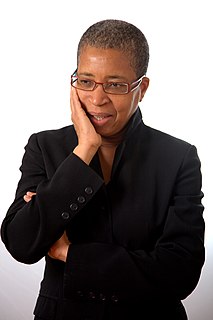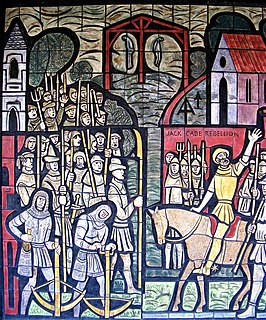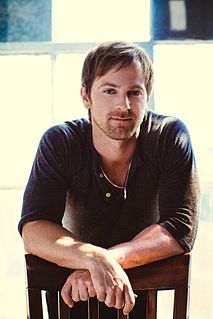A Quote by C. S. Lewis
Honest rejection of Christ, however mistaken, will be forgiven and healed ... but to evade the Son of Man, to look the other way, to pretend you haven't noticed, to become suddenly absorbed in something on the other side of the street, to leave the receiver off the telephone because it might be He who was ringing up, to leave unopened certain letters in a strange handwriting because they might be from Him -- this is a different matter. You may not be certain yet whether you ought to be a Christian; but you do know you ought to be a Man, not an ostrich, hiding its head in the sand.
Quote Topics
Be A Man
Because
Become
Certain
Christ
Christian
Different
Forgiven
Handwriting
Head
Healed
Hiding
Him
Honest
However
Know
Leave
Letters
Look
Man
Matter
May
Might
Mistaken
Noticed
Off
Ostrich
Other
Ought
Pretend
Receiver
Rejection
Ringing
Sand
Side
Something
Son
Strange
Street
Suddenly
Telephone
Up
Way
Whether
Will
Related Quotes
I am quite ready to acknowledge . . . that I ought to be grieved at death, if I were not persuaded that I am going to other gods who are wise and good (of this I am as certain as I can be of any such matters), and to men departed who are better than those whom I leave behind. And therefore I do not grieve as I might have done, for I have good hope that there is yet something remaining for the dead.
Well, I think we ought to definitely look at it and debate it. I think there are a lot of people who have trouble coming to terms with that because they see marriage as traditionally between a man and a woman. But I also know that, you know, when couples are committed to each other and love each other, that they ought to have I think the same sort of rights that everyone has.
There is no man ... however wise, who has not at some period of his youth said things, or lived a life, the memory of which is so unpleasant to him that he would gladly expunge it. And yet he ought not entirely to regret it, because he cannot be certain that he has indeed become a wise man -- so far as it is possible for any of us to be wise -- unless he has passed through all the fatuous or unwholesome incarnations by which that ultimate stage must be preceded.
I know that might sound perverse because I played Julian Assange but, honestly, I don't think it would be fair for me to judge the man. I realize that makes me a bit of a hypocrite because I was portraying him a certain way, but we were always open to the fact that this was an interpretation, not any kind of exact evidence of who the man was.
If you're a poet, you do something beautiful. I mean, you're supposed to leave something beautiful after you get off the page and everything. The ones you're talking about don't leave a single, solitary thing beautiful. All that maybe the slightly better ones do is sort of get inside your head and leave something there, but just because they do, just because they know how to leave something, it doesn't have to be a poem for heaven's sake. It may just be some kind of terribly fascinating, syntaxy droppings--excuse the expression. Like Manlius and Esposito and all those poor men.
Jesus offered a single incentive to follow himto summarize his selling point: 'Follow me, and you might be happy-or you might not. Follow me, and you might be empowered-or you might not. Follow me, and you might have more friends-or you might not. Follow me, and you might have the answers-or you might not. Follow me, and you might be better off-or you might not. If you follow me, you may be worse off in every way you use to measure life. Follow me nevertheless. Because I have an offer that is worth giving up everything you have: you will learn to love well.'
As a philosopher, if I were speaking to a purely philosophic audience I should say that I ought to describe myself as an Agnostic, because I do not think that there is a conclusive argument by which one can prove that there is not a God. On the other hand, if I am to convey the right impression to the ordinary man in the street I think that I ought to say that I am an Atheist, because, when I say that I cannot prove that there is not a God, I ought to add equally that I cannot prove that there are not the Homeric gods.
Drug use, some might say, is destroying this country. And we have laws against selling drugs, pushing drugs, using drugs, importing drugs. And the laws are good because we know what happens to people in societies and neighborhoods which become consumed by them. And so if people are violating the law by doing drugs, they ought to be accused and they ought to be
convicted and they ought to be sent up.
The most dangerous thing you can do is to take any one impulse of your own nature and set it up as the thing you ought to follow at all costs. There is not one of them which will not make us into devils if we set it up as an absolute guide. You might think love of humanity in general was safe, but it is not. If you leave out justice you will find yourself breaking agreements and faking evidence in trials "for the sake of humanity", and become in the end a cruel and treacherous man.
We're at a time now where there's a lot more "I'll do whatever it takes" attitude. I'm not going to say or do what you want me to say or do just because it might help me or be the politically correct thing to do to help my career. And that may have hurt me sometimes. I think about different collaborations that have been brought my way - it might have meant I'd get to be on TV to do certain things, but I've said, "No. It doesn't make sense. I'm not doing it." And other people might jump at the opportunity.




































